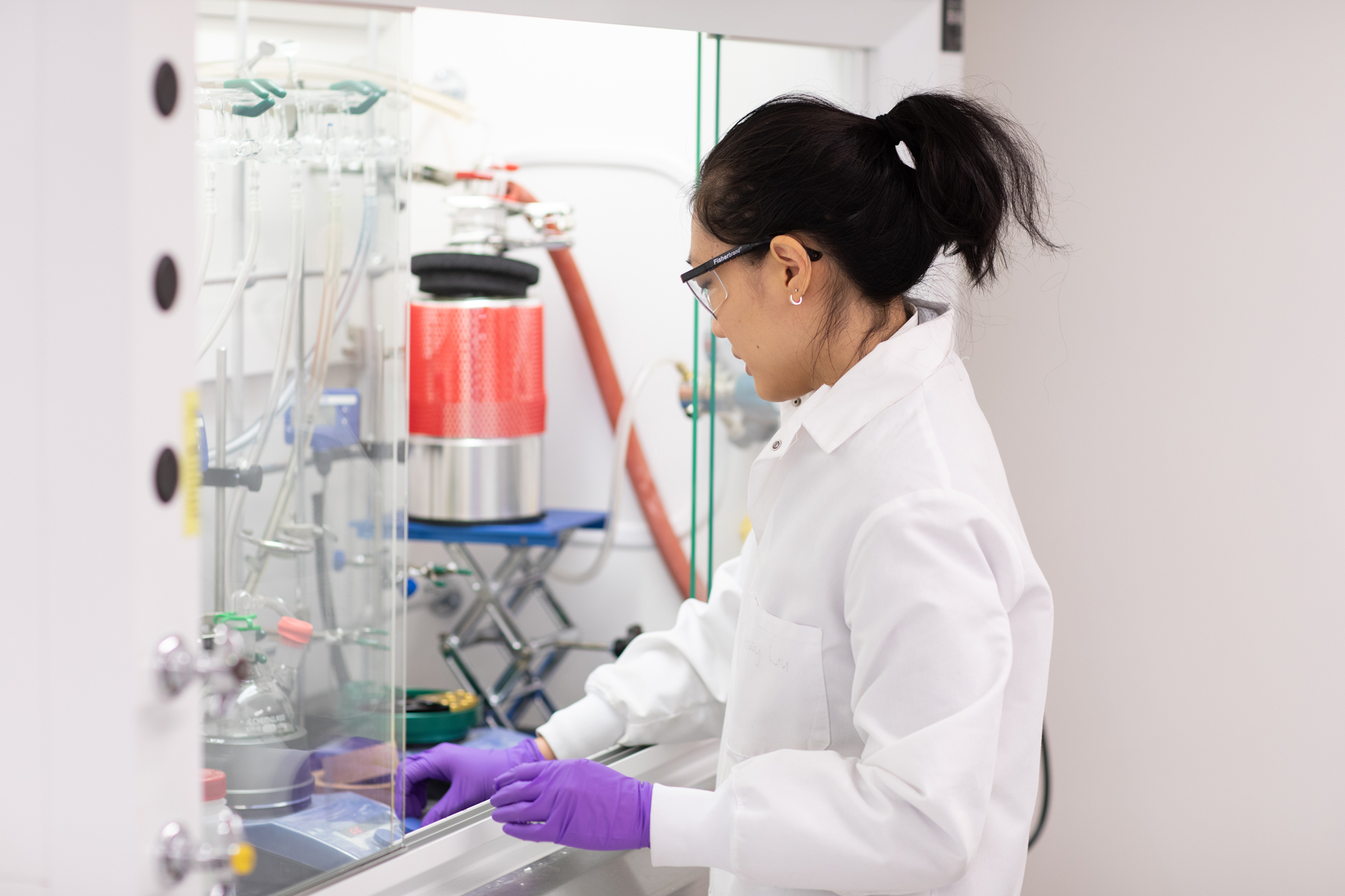Advertisement
Grab your lab coat. Let's get started
Welcome!
Welcome!
Create an account below to get 6 C&EN articles per month, receive newsletters and more - all free.
It seems this is your first time logging in online. Please enter the following information to continue.
As an ACS member you automatically get access to this site. All we need is few more details to create your reading experience.
Not you? Sign in with a different account.
Not you? Sign in with a different account.
ERROR 1
ERROR 1
ERROR 2
ERROR 2
ERROR 2
ERROR 2
ERROR 2
Password and Confirm password must match.
If you have an ACS member number, please enter it here so we can link this account to your membership. (optional)
ERROR 2
ACS values your privacy. By submitting your information, you are gaining access to C&EN and subscribing to our weekly newsletter. We use the information you provide to make your reading experience better, and we will never sell your data to third party members.
Start-ups
Kintai Therapeutics launches to tackle the interface between the gut, immune system, and brain
The startup, founded by Flagship Pioneering, is developing small-molecule drugs aimed at the gut microbiome, gut immune cells, and enteric nervous system
by Ryan Cross
April 16, 2019

The human gut is having a moment in drug discovery, and Flagship Pioneering is the latest investor to join the frenzy. The life science venture capital firm, which creates and launches its own biotech startups, is revealing a new gut-focused company today called Kintai Therapeutics.
While many drug designers pursue therapies to treat gastrointestinal conditions like irritable bowel disease, some are beginning to probe the underappreciated roles the gut plays in brain conditions, cancer, the immune system, and more. Kintai, which was founded in 2016 and remained in stealth until today, aims to tackle those areas with small-molecule drugs. The startup already has about 60 employees and more than 10 drug programs in the works.
Although one of its lead programs is for ulcerative colitis, a form of inflammatory bowel disease, Kintai isn’t merely a gastrointestinal company, CEO Paul-Peter Tak insists. Instead, Kintai views the gut as both a portal for delivering drugs and a command center for relaying messages throughout the rest of the body.
That command center comprises three main parts. First are the immune cells of the gut. “About 70% of the immune cells in the body are actually found in the gut, and these cells are not just sitting there,” Tak says. Since they migrate throughout the body, drugging them in the gut could send them off to fight cancer or dampen their misbehavior in autoimmune diseases.
Second is the enteric nervous system, the collection of about 500 million neurons woven up and down the length of the gastrointestinal tract. These gut neurons use the same major chemical signals as brain cells, plus some unique messenger molecules important for hunger and digestion. Kintai views gut neurons as ways to change the brain without having to design a drug that crosses the blood-brain barrier—a typical holdup for many neuroscience drug programs.
Third is the microbiome, the trillions of bacteria living throughout our bodies, but mostly in our guts. Although several companies are attempting to use bacteria themselves as therapies, Kintai is focused on small-molecule medicines. “We are inspired by what the microbes are doing to the enteric nervous system or immune cells in the gut,” Tak says.
The firm claims to have discovered thousands of genes and hundreds of metabolites that could provide new leads on drugs or drug targets in the gut. “This has been an incredibly rich source of drug discovery,” Tak adds. “We want to translate this knowledge into straightforward chemistry.”
Kintai isn’t divulging any of its drug targets yet. In addition to its ulcerative colitis program, the startup is designing a drug to treat hyperlipidemia and promote weight loss in people with obesity. Kintai also has drug programs for autoimmune conditions, cancer, chronic kidney disease, nonalcoholic steatohepatitis, and neurological conditions including multiple sclerosis.
Kintai also isn’t disclosing its funding. “Flagship will continue to support and grow Kintai,” Tak says. Kintai plans to begin testing its most advanced molecules in human clinical trials next year.


Join the conversation
Contact the reporter
Submit a Letter to the Editor for publication
Engage with us on Twitter